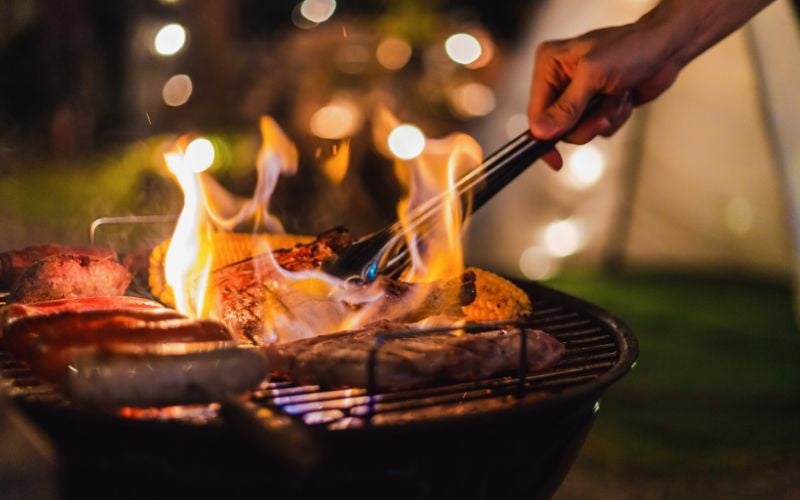'I certainly have regrets.' Actor RUPERT EVERETT tells how aging has made him anxious – and the 'terrible thing' he once said that still haunts him By Richard Godwin For You Magazine Published: 08:01 BST, 21 September 2024 | Updated: 08:01 BST, 21 September 2024 e-mail View comments Regrets? Rupert Everett has had a few. ‘I always think the idea of no regrets is a bit dishonest, in a way,’ says the 65-year-old actor, taking a sip of rum punch.
‘I wouldn’t change anything. But I certainly have regrets.’ I have come to meet the scandalous star and noted wit at a cocktail bar in Islington, North London , to talk about his new book, The American No , a collection of Hollywood-inspired short stories.

One turns up to cocktails with Rupert Everett primed for weapons-grade gossip and general outrageousness. This is the man who was one of Madonna ’s best friends until he described his dog humping her leg and the icon herself as an ‘old whiny barmaid’ in his memoir R ed Carpets and Other Banana Skins , and she stopped returning his calls. He is the lascivious raconteur who once stood on Byron’s balcony in a Channel 4 documentary and declared: ‘This would be an exquisite location for full sex!’ Coat, John Lawrence Sullivan.
Jumper and trousers, Emporio Armani Frankly, I was rather looking forward to being flirted with, only I find the figure who turns up on a changeable London afternoon rather less cocksure than I was expecting. Everett, dressed in a long overcoat, black jeans and undistinguished black trainers, cuts a slightly less dashing figure than the haunted beauty of movies like Another Country and My Best Friend’s Wedding . ‘What do I see when I look in the mirror?’ he responds to one of my questions.
‘Oh, I never look in the mirror if I can help it.’ Jumper, Sunspel He is in a weird mood, he explains, possibly coming down with something. He tries to steel himself with rum punch, Mary Poppins’s favourite ( Mary Poppins being the movie that ignited the four-year-old Everett’s dream of stardom), but he seems to find it hard to settle.
His brain can’t filter out the barroom noise as it once did. ‘It’s like doing a play when the audience is talking,’ he complains. Nor can he take alcohol as he once did.
‘Your liver is just not as strong when you’re older. You’re tipsy quicker. And your recovery period is longer.
Old age is much better approached without alcohol, if you can do it. But the thing is, at five o’clock in the evening, every nerve ending in my body is craving a drink.’ I was motivated by sex.
I thought the world was all sex and drugs and rock ’n’ roll, which in a way it was I tell him we can happily settle up and move to a quiet café. ‘Oh no, let’s have another,’ he says and promptly orders one. ‘I’m warming up.
’ He’s quite a confounding person, Rupert Everett. It is this unpredictability that makes him so compelling, both in person and on the page. His memoirs are the memoirs by which all celebrity memoirs should be judged: indiscreet, evocative and beautifully written, too.
The American No (see below for our exclusive extract) is also a wonderful collection and I feel its title is worth a place in the dictionary. According to Everett, an ‘American no’ is something he has experienced many times in his career. It’s when you take an idea for a movie to a Hollywood studio, have a scintillating meeting, then never hear from them again.
Rupert (left, with Colin Firth) in Another Country , the 1984 film that shot him to fame The collection of short stories opens with a framing device. Everett is sitting in Bar Italia in London’s Soho, looking out over the small stretch of pavement where he once conducted all his business meetings and love affairs, reflecting on the brief period in which ‘we queens achieved supremacy’. Then he runs into an old producer friend who reminds him of a story Everett pitched him.
‘It was brilliant. Original. Funny, too.
’ But it was turned down as it was ‘too gay’. The stories that follow are all developed from ideas that Everett trawled around movie studios over the years and were similarly too brilliant, too gay or too original to make it on to the screen. ‘As [actor] Edmund Kean said, “Show business is not for those who bleed easily,”’ he says.
‘It’s mostly a series of crashes. But that’s the price you pay for the privilege of the successes.’ Everett was 22 when he scored his first hit in the public-school drama Another Country , which went from sellout West End run to a successful (heartbreaking) movie.
Orson Welles decided that this rakish, upper-class former rent boy and drama school dropout was the actor he wanted to play his younger self in a planned biopic and had Everett flown to Hollywood. But that movie never happened. And neither did Everett’s Hollywood career – at least, not in the way he anticipated.
There have been waves of success: My Best Friend’s Wedding ; An Ideal Husband . There have been dismal failures: The Next Best Thing with Madonna . He’s still in the game – most recently turning up as a thrillingly bitchy interior designer in the latest series of Emily in Paris.
But modern Hollywood in particular seems to leave him cold. As interior designer Giorgio Barbieri in the latest series of Emily in Paris An entire category of movie has ‘fallen off the edge of a cliff’, he feels. ‘What would you call the mainstream of today? There aren’t really 90-minute movies any more.
’ He thinks Barbie was overrated. Oppenheimer was ‘like a French and Saunders sketch’. He doesn’t much like the shows on the streaming channels.
‘They kind of urge you to stay in your room and be up all night watching 18 episodes. You can’t get a grip on the narrative in the same way as you can in a film or play. And we’re so numbed! You have to more or less put a grenade up someone’s bum and set it off to get any reaction at all.
’ In fact, he seems rather unimpressed with the modern world. When I ask him which writers he most admires, he lists Evelyn Waugh, J R Ackerley and Nancy Mitford – no one contemporary. At one point I mention the pop star Lana Del Rey.
‘Is she still around?!’ he exclaims. And I have to explain that Lana Del Rey is, in fact, a contemporary singer and not a movie star from the 1950s. The list goes on.
Americans aren’t what they were. ‘When I was a kid, everyone wanted to get to America as it was so warm and positive. But I don’t think they are so warm and positive now.
They’re certainly not nearly so friendly towards English people.’ Really? ‘Read The New York Times ! It’s almost a daily diatribe against the United Kingdom.’ He feels that a certain ‘rough and tumble quality’ has disappeared from British culture: ‘I think The X Factor changed it.
’ So the decline in US-UK relations is all down to Simon Cowell? ‘I think he is responsible for a cultural deadening.’ As for politics, Everett is a lifelong Labour voter but doesn’t seem too enthused by the Keir Starmer government. ‘I’m thinking of starting a new party.
The One World Whigs.’ He also watched Kamala Harris’s speech at the Democratic National Convention and thought it was ‘hopeless and insubstantial’. Clothes, Dior.
To be clear, he desperately hopes she beats Donald Trump. ‘But it’s amazing how the impetus takes over from the substance. The momentum has nothing underneath it.
’ He feels that the Democrats’ obsession with ‘wokery’ is pushing voters towards Trump. ‘It feels like we’re in a weird stage of democracy. It feels more authoritarian.
On either side.’ Wouldn’t the 20-year-old Rupert Everett have been in support of much of this so-called wokery – say, trans rights? ‘I am pro trans rights,’ he says. ‘But I’m not into freedom of speech being taken away.
That is an essential thing we’re losing.’ I suppose it’s not hard to see why Everett might come to such a conclusion. He’s someone who speaks his mind and takes the consequences.
‘Live by the sword, die by the sword, ha!’ But he has noticed that he has become more guarded. ‘I don’t want to upset people.’ The incident that sticks in his mind is a ‘terrible thing’ he once said about the British military.
This was in 2008, when he called British soldiers ‘wimps’ and made light of the torture of prisoners of war. ‘I come from a military family and that upset them very much. It was slightly misconstrued.
’ He was also ‘slightly misquoted’, he claims, when he said in 2012 that he couldn’t ‘think of anything worse than being brought up by two gay dads’, prompting a significant backlash from the gay community. His characterisation of gay marriage as ‘tragic’ didn’t go down too well, either. ‘Oh, I hate marriage in general,’ he says.
Yet he is now married himself. He tied the knot with his long-term boyfriend, Henrique, a Brazilian accountant, back in May in a ceremony at Camden Town Hall. How come? ‘Well, I’m old and I might die and there’s more protection for your other half if you’re married.
We’ve been together for a long time, and it felt like the best thing to do.’ He met Henrique at the gym in 2007, but he’s not inclined to go into details. It’s not fair on Henrique, who is a very private person, he says.
‘And I’m not going to talk about Madonna, either,’ he adds. At around this point, a particularly noisy party settles down at the table next to us and we finally agree that it would, after all, be sensible to switch venues. We walk down the Essex Road and find a quiet greasy spoon.
‘Much better!’ Everett exclaims. At a table in a corner, he relaxes. ‘You know, I don’t do that many interviews any more,’ he says.
‘It’s difficult to kind of zhoosh yourself up.’ He has found with age that he has become less certain of his own opinions. ‘I think you’re only sure about things when you’re young.
And then you realise how crackers that certainty was.’ I’ve often wondered what was driving him, back in his younger days. Reading his memoirs, it’s hard not to be struck by his talent for self-sabotage.
‘Well, first of all, I was motivated by sex. Sex and success. Ah, tea for me, thank you very much,’ he adds as the waitress comes by with hot drinks.
Rupert with his mum Sara, who lives next door to him in Wiltshire ‘And then,’ he resumes, prodding his teabag with a spoon, ‘I had such a weird idea what the world was. I didn’t have a clue. I thought it was all sex and drugs and rock ’n’ roll, which in a way it was.
But it’s a serious business. You have to get on with it properly and deliver. I think if you’ve noticed that I’m regretful, I’m regretful that I didn’t manage to combine successfully or more successfully my ideas for myself as an actor.
’ This, then, is his principal regret, that he didn’t take it all seriously enough. ‘I wish I’d been more serious about it when I was young.’ He worries that, for all his overspilling talents (he’s an accomplished musician, too), he didn’t manage to find that particular niche in which he could grow comfortable, he says.
‘I should have probably concentrated harder on the stage. I was always trying to turn myself into the conventional Hollywood star I wanted to be when I was a kid. I wanted to be Tom Cruise! But I was a 6ft 5in beanpole looking like a cross between Snow White and Anne Frank.
So there was no way I was going to be able to compress myself into that role. It’s not that I was doing nothing, but I was doing everything in the wrong direction.’ He thinks he became more anxious about all this in his mid-50s, when he began to care for his elderly mother, who has just turned 90.
‘The thing about us old-school gays is we had no responsibility. So you can end up being 55 and still behaving like a university graduate. Back then I had no responsibilities and lots of work coming in.
Now I have a lot of responsibility and not so much coming in.’ His love for his mother is deeply touching – she reminded him of Mary Poppins – even if the generational divide is cavernous. ‘Right up until I was 30, people said to my mum, “You know your son’s a poof?” And she’d say, “I don’t think you’ll find that’s true.
” Which is sweet, really. I think that’s how she dealt with it.’ He divides his time between Bloomsbury in London, where he has a flat, and Wiltshire, where his mum lives next door, which sounds like a fairly happy arrangement.
I tried to turn myself into aconventional Hollywood star. I should have concentrated on the stage ‘When my dad started getting ill, I was living in America and every time something happened I’d fly back, and I’d always find myself in an irritable mood because it was such a huge move to get there for two or three days. I think living with older people is a much better solution.
It feels more organic. Easier. There are no surprises or shocks or dashing to your car and driving 300 miles.
It’s nice having them on the doorstep, in a way.’ We talk about ageing and death and caring for people for a while and he suddenly worries that the interview has been boring. ‘I don’t know if I can say something that’s more salacious!’ He, too, had anticipated that we would end up drinking ourselves into oblivion and isn’t sure how it has ended up like this.
No, it’s been interesting, I say. It simply wasn’t how I expected it. ‘What did you expect?’ Oh, you know, sex in bathrooms, weapons-grade gossip.
‘I don’t know anybody. I mean, I really don’t any more. I’m keeping going but I don’t go to parties or anything like that.
I’m like a bicycle without brake pads now. I’m careering down the hill and I’m putting on the brakes and nothing’s happening. The older you get, the more shrill and anxious you become.
You become more fearful about everything.’ He did seem so fearless in his younger days. ‘Yeah, I think that’s youth, isn’t it? It’s fearlessness.
’ I look into Everett’s face, still so full of life, but now deeply etched into crevasses of anxiety. There remains the tantalising hope that maybe his best roles are still ahead of him. The fruity roles.
The theatrical roles. The roles that might suit his peculiar charisma. ‘What I want to get into is Harry Potter the TV series.
There’s a lot of free broomsticks because almost everyone’s fallen off theirs. You know Dumbledore is supposed to be gay?’ Does he feel consoled by having lived a life full of fascinating people and beautiful places? Or does that only make the present seem a little thin? He ponders this one. There are wonderful things about experience, he says.
‘I love that I know every street in London. No one else seems to know where anything is any more. I do love what I’ve seen of the world.
.. but I don’t think that matters when you’re dying, does it? I think you always want more.
’ The American No by Rupert Everett will be published in hardback, £20, and as an audiobook by Abacus on 3 October. To pre-order a copy for £17 until 6 October, go to mailshop.co.
uk/books or call 020 3176 2937. Free UK delivery on orders over £25. Everett will be appearing at the London Literature Festival on 26 October An exclusive extract from The American No A phrase originally coined by a producer friend with a gallows sensibility.
In show business, particularly in the world of ‘pitching’, here’s what happens. We achieve a meeting – no mean feat in itself – then, if we’re an actor, we ‘appear’ in a room of executives to pitch our story. If we’re surfing in on the wave made by a successful movie, we can behave any way we like, possibly even passing out during the pitch.
It will be written off as a part of our star quality – our raw talent finding its way. However, if we aren’t riding in on a hit – my lot, except for once – don’t be late. Have fun.
But not too much. Be thankful. But don’t go down on all fours.
Make it vivid. Be prepared for questions and qualms. Normally, the meetings go well, but don’t be fooled by everyone’s casual manners or dazzling smiles.
Particularly in America. There are codes of behaviour in Hollywood more complex and nuanced than attempting to do business as a geisha. ‘Let’s do this.
I’m psyched. We love you here at Bottomy Bay Productions,’ they say, walking you out, arms slung casually over your shoulder. You leave the meeting walking on air.
It’s in the bag. Then you never hear another word. It’s called the American no.
Picture director: Ester Malloy. Styling: Joanne M Kennedy. Grooming: Alex Szabo at Carol Hayes using Omorovicza and hair by Sam McKnight.
Share or comment on this article: 'I certainly have regrets.' Actor RUPERT EVERETT tells how aging has made him anxious - and the 'terrible thing' he once said that still haunts him e-mail Add comment.




















